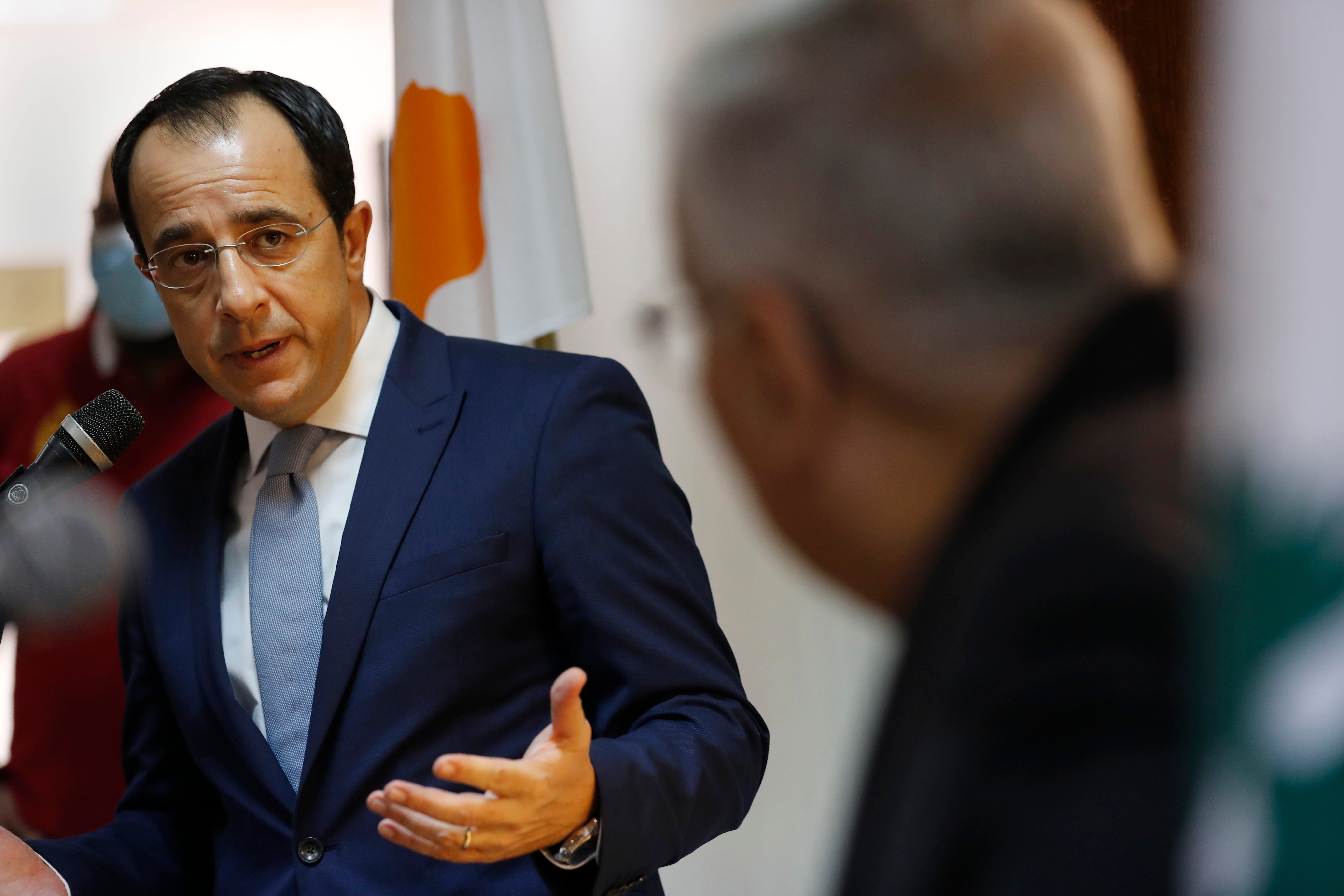Cyprus FM urges Lebanon to implement reforms to unlock aid
The foreign minister of the Mediterranean island of Cyprus is urging the new Lebanese government to implement reforms quickly, in order for the international community to unlock aid to crisis-hit Lebanon

Your support helps us to tell the story
From reproductive rights to climate change to Big Tech, The Independent is on the ground when the story is developing. Whether it's investigating the financials of Elon Musk's pro-Trump PAC or producing our latest documentary, 'The A Word', which shines a light on the American women fighting for reproductive rights, we know how important it is to parse out the facts from the messaging.
At such a critical moment in US history, we need reporters on the ground. Your donation allows us to keep sending journalists to speak to both sides of the story.
The Independent is trusted by Americans across the entire political spectrum. And unlike many other quality news outlets, we choose not to lock Americans out of our reporting and analysis with paywalls. We believe quality journalism should be available to everyone, paid for by those who can afford it.
Your support makes all the difference.The foreign minister of the Mediterranean island of Cyprus on Wednesday urged Lebanon s new government to implement reforms quickly, in order for the international community to unlock aid to crisis-stricken Lebanon.
Nikos Christodoulides is the first foreign minister from the European Union to visit Lebanon since Prime Minister Najib Mikati's Cabinet took office last month. Mikati has pledged to work toward quick reforms in the small Mideast nation notorious for corruption and now on the verge of bankruptcy.
The World Bank has described Lebanon's economic and financial crisis, which started two years ago, as one of the worst the world has seen since the mid-1850s. The national currency has collapsed and inflation has soared, plunging most of the population into sudden poverty. The crisis has been worsened by the coronavirus pandemic and the massive explosion at Beirut's port in August 2020 that wiped out the facility and badly damaged large parts of the city.
“Lebanon stands at a critical crossroads and the new government has to face substantial challenges,” Christodoulides told reporters after meeting Lebanese Foreign Minister Abdallah Bou Habib in Beirut.
“It is paramount that the necessary actions and reforms be taken swiftly, in order for the international community to be able to unlock the aid it has pledged to Lebanon in the past,” Christodoulides added.
Lebanon resumed contacts with the International Monetary Fund in recent days and hopes to soon resume talks over a bailout package. The talks were suspended last year.
Other countries have conditioned financial assistance or investments in Lebanon on its government implementing badly needed and radical reforms.
Separately, Jordan agreed Wednesday to supply Lebanon with electricity through Syria and said that work is underway on a plan and a timetable on how to implement the deliveries. Jordan's energy minister, Hala Zawati, made the announcement after a meeting in Amman with her counterparts from Lebanon and Syria.
The meeting comes after last month's agreement to supply Lebanon, where electricity shortages are critical, with Egyptian natural gas through Jordan and Syria. Zawati said the three ministers agreed on supplying Lebanon with “some of its electricity needs” through the Syrian power network.
Electricity cuts in Lebanon have been a decades-long fixture; they now for about 22 hours a day. Most of the Lebanese rely on private generators for power as state company supplies are limited.
Syrian Energy Minister Ghassan al-Zamel said his ministry is working on fixing the network badly damaged by his country's 10-year civil war.
Jordan’s Prime Minister Bisher Khasawneh visited Lebanon last week and said there are efforts to provide Lebanon with some electricity from Jordan. Lebanon’s energy minister Walid Fayad said work is underway on funding such an agreement.
Washington, which has imposed various sanctions on Syrian officials and entities, had endorsed such a deal to help Lebanon with its energy crisis.